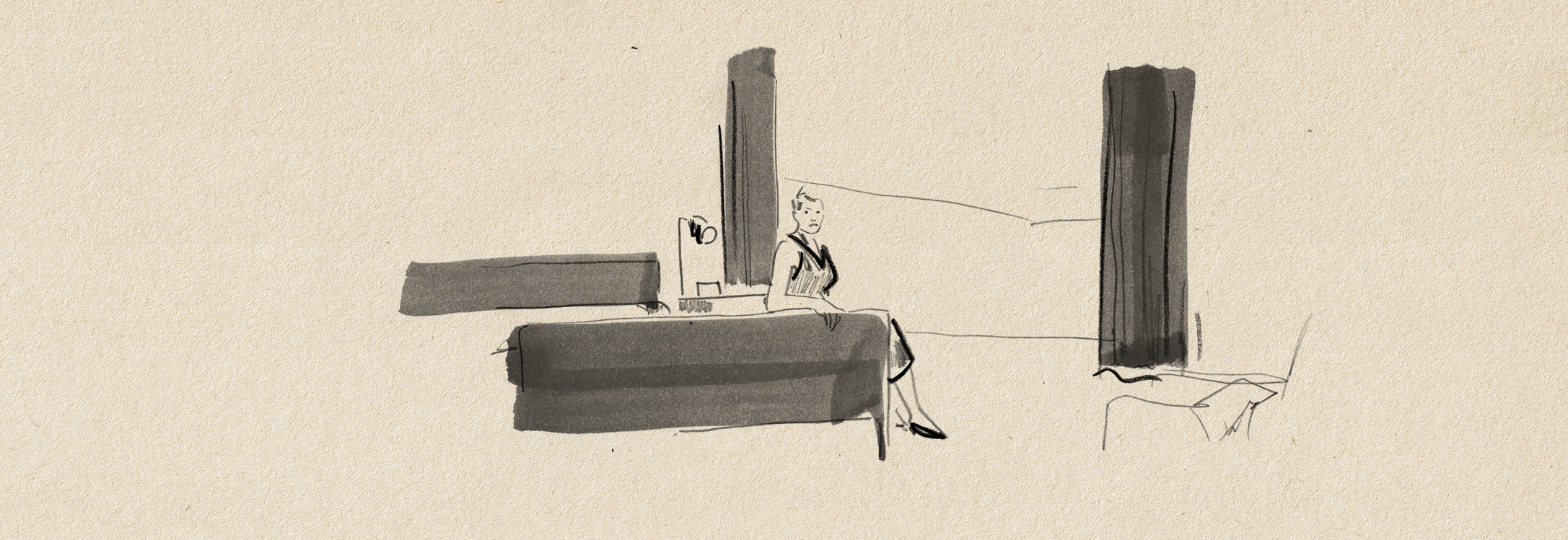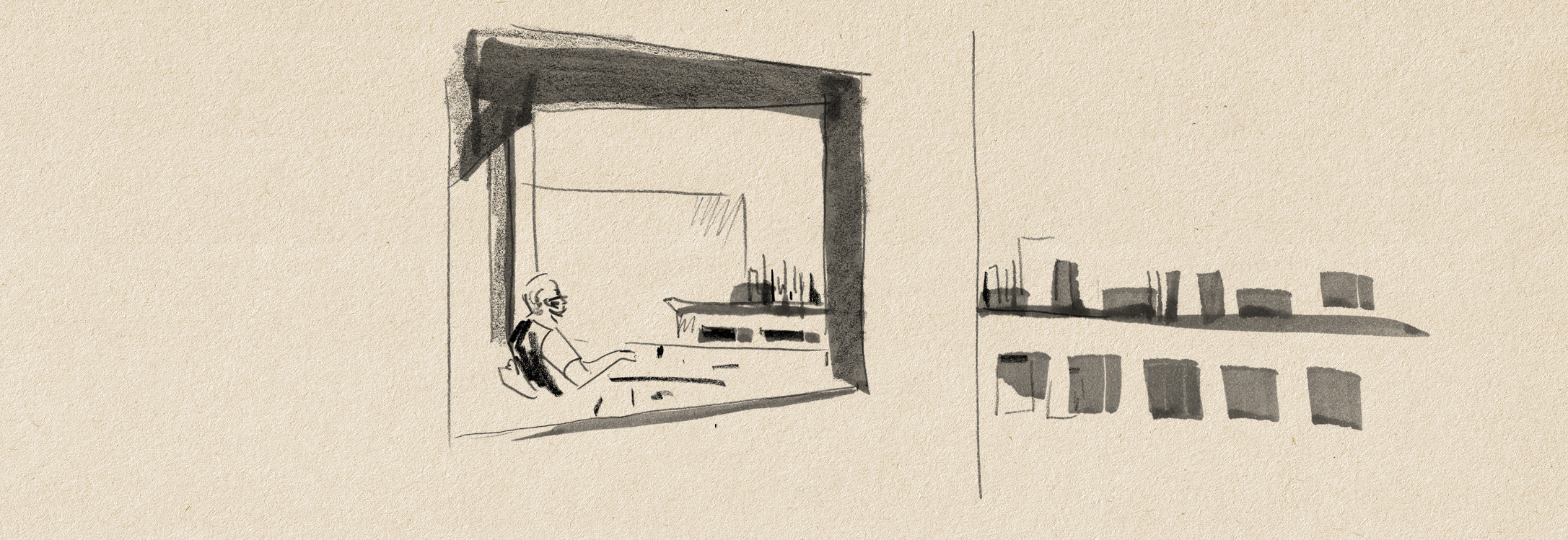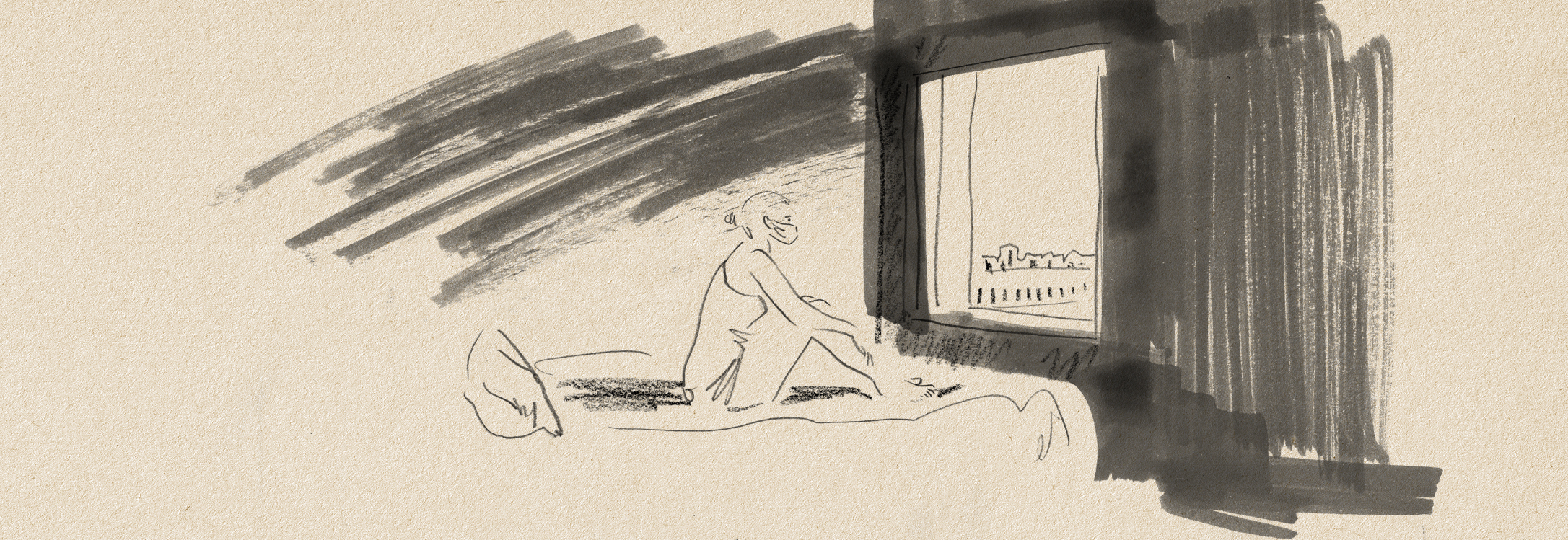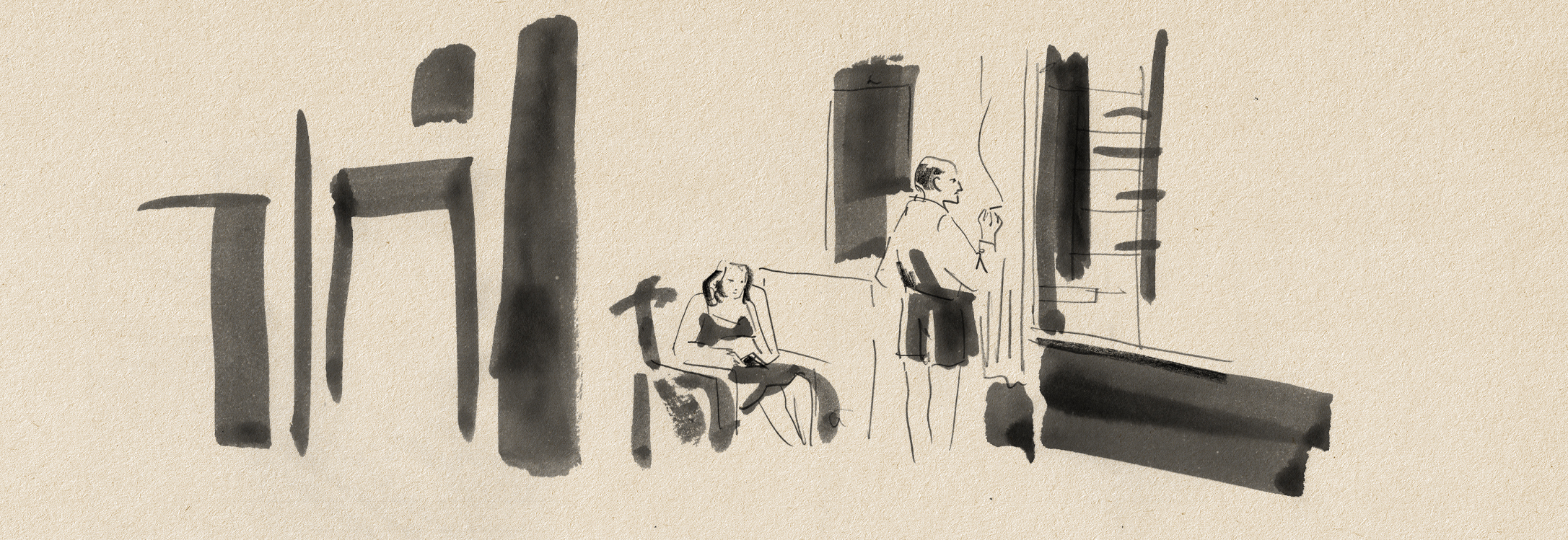
My chief discovery from the first period of lockdown was how the experiences of some were so different to those of others: single people and those with grown-up children spent that time in a radically different way to parents with small children. I’m not talking here about the evaluation of – or rivalry over – life’s difficulties. Especially since both groups’ days boiled down to a common dream that this damned day (and every other) would finally end.
Inasmuch as single people suffered from too much time on their hands, an overdose of silence, feelings of loneliness and the terrifying boredom that settled in day after day, so the parents of small children suffered from too little time, noise levels rivalling that of a tin-plating factory from the 1960s, and enforced multitasking – writing a work email with one hand and making a tower out of building blocks with the other. The experiences of the two groups were diametrically opposite.
It’s the holidays after the first lockdown. We are sitting with friends over a beer at the seaside. One of my friends raves about how he is about to become a father. The joke runs around the table that if there is a baby boom after the first lockdown, they will certainly all be first children. I glance at my friend, the mother of a little girl one year older than my daughter and I see it all in her eyes; I see what none of us will say out loud at this table. Hundreds of hours stewing at home without the hope of going out. Taking time to work from time allocated to childcare, and taking time to play together from time allocated for work. Initially quiet and then not-so-quiet arguments about who is meant to work now and who will take care of lunch and the children. Who will go and check why the microphone isn’t working on the school computer? Who will make the Easter bunny from dried groats and socks? In more than one family, that bunny could have become grounds for divorce. Who cares that Pinterest and Instagram are swarming with advice on how to make a home-made sensory table or how to make a little house out of cardboard boxes? So what if Allegro [an online marketplace, the Polish equivalent of eBay – ed. note] is recommending fast delivery for every toy? For one, you need time and the other, cash. Many of us have neither one nor the other – and not just during the pandemic.
If, however, I can draw any conclusion from the situation we found ourselves in, it is simply this: I should chill. I will not beat myself up over the fact that it’s dumplings for dinner for the second time this week, nor that I am handing over the 59th cup of new playdough. Nor that at work, I am like a centaur – make-up and an elegant blouse on top, tracksuit bottoms below.
However, there’s another area where I won’t take it easy and this is in my relations with the state. Because although I became a mother, fully conscious of the challenges, I gradually gave into the pressure. I turned into Polish Mother* version 2.0; one who wonders if she is a good enough mother and liberated enough at the same time. The sort of mother who is constantly negotiating a compromise in her head between Polish Mother version 1.0 and the demands of her environment and offspring. One who is trying to reconcile her career, ambitions, home, and bringing up her children. But also, one that continues to believe that it should be possible, in the public arena, to negotiate some space to allow these goals to be achieved. Meanwhile, no-one sits down with me to hold these negotiations. Because, in the general male consciousness, it is still my obligation; and if I’m not keeping up, it’s my fault. Maybe I should be better organized?
You can’t do any better. You can’t be on the go for 19 hours a day. I mean, you can (we all do it), but, if we slow down, the first to lose out will be the kids, and that’s not fair on them. I will bide my time. And then I will throw myself back into all the referenda, elections, publications, polls, marches and demonstrations.
*Translator’s note:
Polish Mother is a translation of Matka Polka in the original Polish text – a phrase that encapsulates an idealized image of the traditional Polish mother. She loves her children beyond measure. She is a multi-tasker; a woman with one or two children. Most often she works in an office or in the service sector, but rarely in a managerial or directorial position. While the words Matka Polka carry more culturally-specific connotations in Polish, the concept as described above can be broadly understood outside of Poland.
Translated from the Polish by Annie Jaroszewicz
Dear Readers,
There are difficult and unsure times ahead of us. We believe that by supporting each other we will survive the winter, as well as all future seasons that pose new challenges for us. That is why we would like to encourage you to share your experiences, lockdown stories and strategies on how to survive the current havoc. We will publish the most interesting texts on our website.
The length of the text should be a maximum of 4000 characters (with spaces). Please send it to [email protected] and include ‘Reader Submission’ in the subject line.
All the best,
Przekroj.pl/en Team








